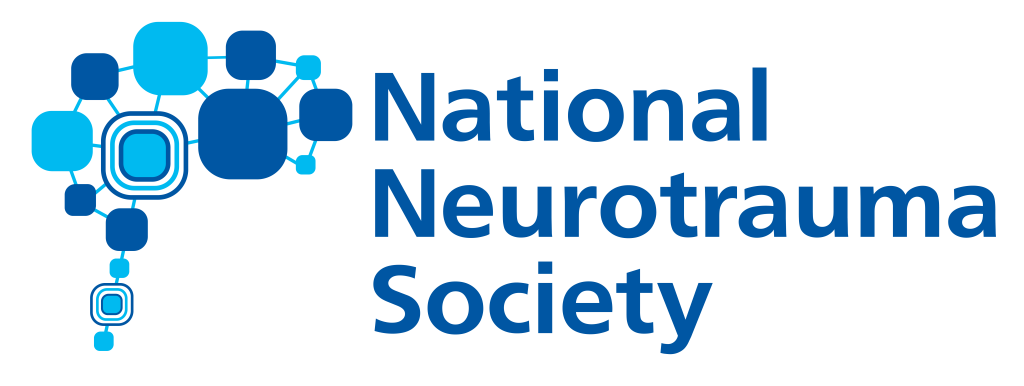AWARDS & GRANTS
Awards & Grants > Society Awards > Rising Star Award

RISING STAR AWARD
This award was established in 2020 by Dr. Pramod Dash to facilitate meeting attendance to scientists within 5 years of completing their postdoctoral or residential training.
Dr. Dash is a leader in the field of molecular and circuitry mechanisms of memory dysfunction after traumatic brain injury. Dr. Dash has mentored dozens of PhD students, postdoctoral fellows and junior faculty and served as the Scientific Director of Mission Connect from 2008 to 2017.
This award will be bestowed to an applicant that has made a significant contribution in the field of TBI/SCI within the past year and presented at the annual Symposium.
Award & Recognition
$500.00 and engraved glass trophy presented at the annual Symposium.
The winner is invited to deliver an oral presentation describing their research at the 2026 NNS Symposium. A registration fee waiver will be provided.
Application Dates
Application Opens: Applications opening soon!
Application Ends: January 12, 2026
Eligibility
Must be a member of NNS and within 5 years of completing postdoctoral, residency and/or fellowship training. Interested individuals are welcome to self-nominate.
How To Apply
1. NIH style biosketch from the applicant.
2. A copy of a publication representative of recent scientific contribution.
• Priority will be given to peer reviewed publications.
• Priority will be given to publications within the last 18 months.
3. Applicant letter describing their research contribution in the field of TBI/SCI and the impact that research has had in the field of neurotrauma.
4. A letter of support from a mentor or a faculty member. Letter should describe the applicant and impact of the applicant’s research.
NNS recognizes that impact includes, but is not limited to, journal metrics, citations, media coverage, advancement in clinical practice, advancement in scientific techniques, etc. Applicants are encouraged to use these categories as a guide when discussing impact, but they should also feel supported to highlight research impact in their own words and emphasize additional, relevant categories of impact.
Maximum letter length is 2 pages and should follow NIH formatting guidelines.
Previous Award Recipients

Justin E. Karr, PhD
Dr. Justin E. Karr is an Assistant Professor and the Clinical Neuropsychology Concentration Coordinator in the Department of Psychology at the University of Kentucky. He completed his Ph.D. in Clinical Psychology with a Neuropsychology specialization at the University of Victoria in 2018, where his doctoral studies and research were supported by the Vanier Scholarship through the Natural Sciences and Engineering Research Council of Canada. He completed his clinical internship at the Seattle VA hospital and his postdoctoral fellowship within the Harvard Medical School system at Spaulding Rehabilitation Hospital and Massachusetts General Hospital.
Dr. Karr has published over 95 peer-reviewed journal articles and authored over 130 presentations at regional, national, and international conferences. His research has been financially supported by the National Institutes of Health and the National Academy of Neuropsychology. His studies have focused on neuropsychological assessment methods, cross-cultural validation of psychological tests, cognitive aging, and the psychological and cognitive sequelae of brain injury in diverse populations, including student-athletes, veterans, and survivors of intimate partner violence. Dr. Karr’s research has focused on multimodal outcomes following neurotrauma, including neurobehavioral symptoms, cognitive functioning, fluid biomarkers, and neuroimaging. He aims to identify both risk and protective factors related to post-injury outcomes, with the goal of identifying levers for intervention to improve the health and functioning of patients with brain injuries.
In recognition of his work, he has received the 2023 Early Career Award from the National Academy of Neuropsychology, the 2025 Early Career Investigator Award from the International Brain Injury Association, and is now honored to receive the 2025 Rising Star Award from the National Neurotrauma Society.

Daniel Daneshvar, MD, PhD
Dr. Daneshvar serves as Chief of Brain Injury Rehabilitation at Harvard Medical School and Vice President of Medical Staff at Spaulding Rehabilitation, where he conducts research on the long-term effects of moderate-severe traumatic brain injury, concussion, and repetitive head impacts, including chronic traumatic encephalopathy (CTE) and amyotrophic lateral sclerosis. Dr. Daneshvar has authored and co-authored over 70 scientific papers including in JAMA, Nature Communications, and Brain, and his work has been featured broadly including in the New York Times, the Wall Street Journal, NPR, and ESPN.
He also founded Team Up Against Concussions, the first scientifically validated concussion education program for kids, for which he received the 2016 Excellence in Public Health award from the United States Public Health Services. He is the Director of the Institute for Brain Research and Innovation at TeachAids, which created CrashCourse: a free, scientifically validated virtual reality and computer-based concussion education program, for which he received the 2021 Dean’s Community Service Award from Harvard Medical School.
Dr. Daneshvar received his BS from the Massachusetts Institute of Technology, and completed his MD/PhD at the Boston University CTE Center, where his research resulted in the first dissertation in history to study CTE. He completed residency at Stanford University before joining the faculty at Harvard Medical School.

Andrea Schneider, MD, PhD
Andrea Schneider received her MD in 2014 from the Johns Hopkins University School of Medicine and received her PhD in Epidemiology from the Johns Hopkins University Bloomberg School of Public Health in 2012. Dr. Schneider completed her Neurology Residency and Neurocritical Care Fellowship at Johns Hopkins Hospital in 2020. She is currently an Assistant Professor of Neurology in the Division of Neurocritical Care with a secondary appointment in the Department of Biostatistics, Epidemiology, and Informatics at the University of Pennsylvania Perelman School of Medicine. Dr. Schneider has studied associations between clinical and subclinical vascular risk factors with cognitive outcomes. She also developed an interest in the impact of traumatic brain injury (TBI) on neurocognitive outcomes. As a neuroepidemiologist, she has authored over 100 peer-reviewed publications using data from several large epidemiologic cohorts, including the Atherosclerosis Risk in Communities (ARIC) Study, the National Health and Examination Survey (NHANES), and the Transforming Research and Clinical Knowledge in Traumatic Brain Injury (TRACK-TBI) Study. She is PI in an NINDS K23 grant and two Department of Defense research grants. Her research program is centered on TBI epidemiology and the prevention of TBI-related sequelae, with a focus on the prevention of neurodegeneration and dementia.
VIEW OTHER SOCIETY AWARDS:

DASH
PRIZE

HONORARY
AWARD

